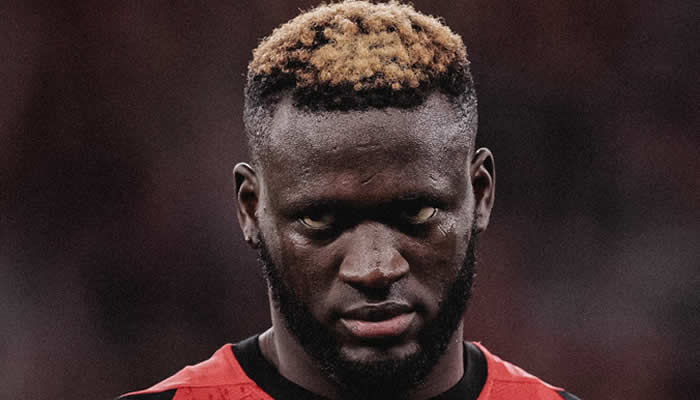The Transfer Saga of Victor Boniface: A Deep Dive into the Failed Move to AC Milan
The footballing world was abuzz with the potential transfer of Nigerian striker Victor Boniface from Bayer Leverkusen to AC Milan. The move seemed imminent, with weeks of speculation and reported discussions between the two clubs fueling the anticipation. Boniface, a rising star with a promising career ahead, appeared poised to join the ranks of one of Europe’s most storied clubs. However, the narrative took a sharp turn when news broke that the transfer had collapsed due to Boniface’s failure to pass a medical examination. This unexpected development sent shockwaves through the football community, particularly in Nigeria, where Boniface’s career is followed with great interest.
The news of the failed medical and subsequent collapse of the transfer was first reported by renowned football transfer expert Fabrizio Romano. Romano, known for his accurate and timely reporting on transfer dealings, quickly disseminated the information through his various social media platforms, sparking a flurry of reactions and discussions. In Nigeria, the news was met with a mixture of disappointment and disbelief. Many questioned the validity of the medical results, while others speculated about the underlying reasons for Boniface’s alleged failure.
Adding fuel to the fire was a pre-medical assessment by veteran Italian coach Fabio Capello, who publicly expressed reservations about Boniface’s suitability for AC Milan. Capello’s comments, made just days before the medical examination, raised eyebrows and seemed to foreshadow the eventual outcome. While the exact nature of Capello’s concerns remains unclear, his public critique of the potential transfer undoubtedly added to the pressure surrounding Boniface.
In the aftermath of the failed transfer and the ensuing media storm, Boniface took the unusual step of directly contacting Fabrizio Romano and demanding the removal of his posts about the situation. This action underscored the sensitivity of the issue and hinted at the potential reputational damage Boniface may have felt he incurred. The request for post removal also raises questions about the ethics of reporting on medical information in the context of player transfers, a topic that has generated debate within the football community.
The entire episode underscores the complexities and uncertainties inherent in the world of football transfers. What appeared to be a done deal quickly unravelled, leaving all parties involved in a state of limbo. Boniface, once on the cusp of a dream move to a top European club, now finds himself facing an uncertain future. AC Milan, having invested time and resources in pursuing the transfer, must now redirect their efforts elsewhere. And Fabrizio Romano, caught in the crossfire, finds himself navigating the delicate balance between reporting accurately and respecting the privacy of the individuals involved.
This situation also highlights the increasing scrutiny placed on players’ medical records and the potential impact of medical examinations on transfer negotiations. As clubs become more meticulous in their assessments of player health and fitness, the medical examination has emerged as a crucial hurdle in the transfer process. The case of Victor Boniface serves as a stark reminder of the power of the medical assessment to make or break a transfer, and the potential consequences for players who fail to meet the required standards. It also underscores the need for transparency and sensitivity in reporting on medical information related to player transfers, recognizing the potential impact on players’ careers and reputations.


